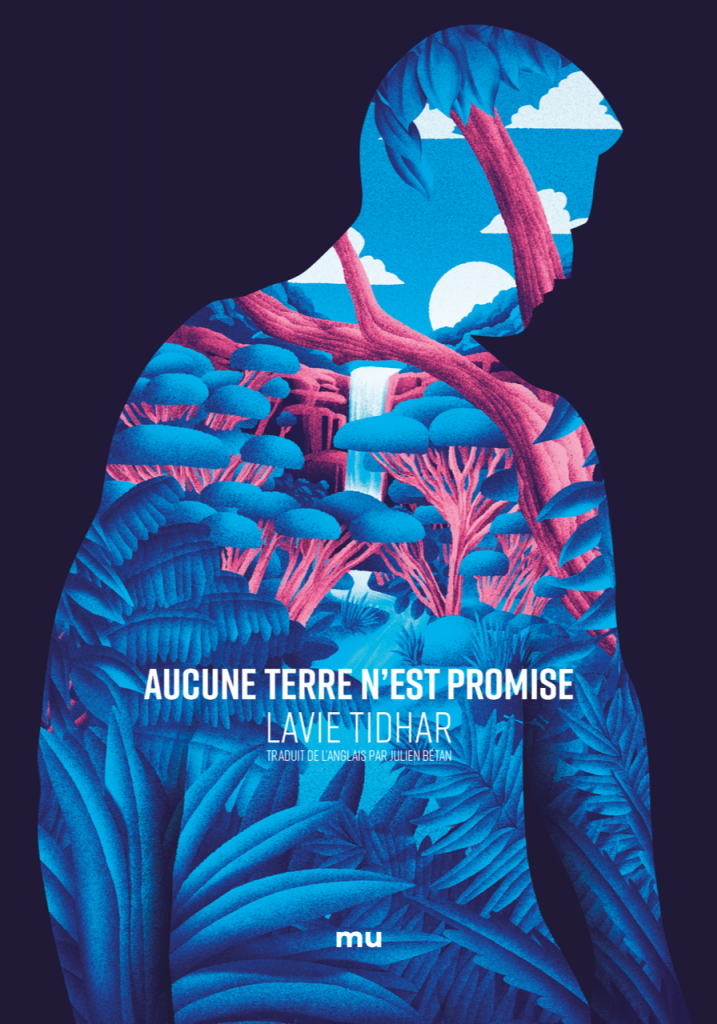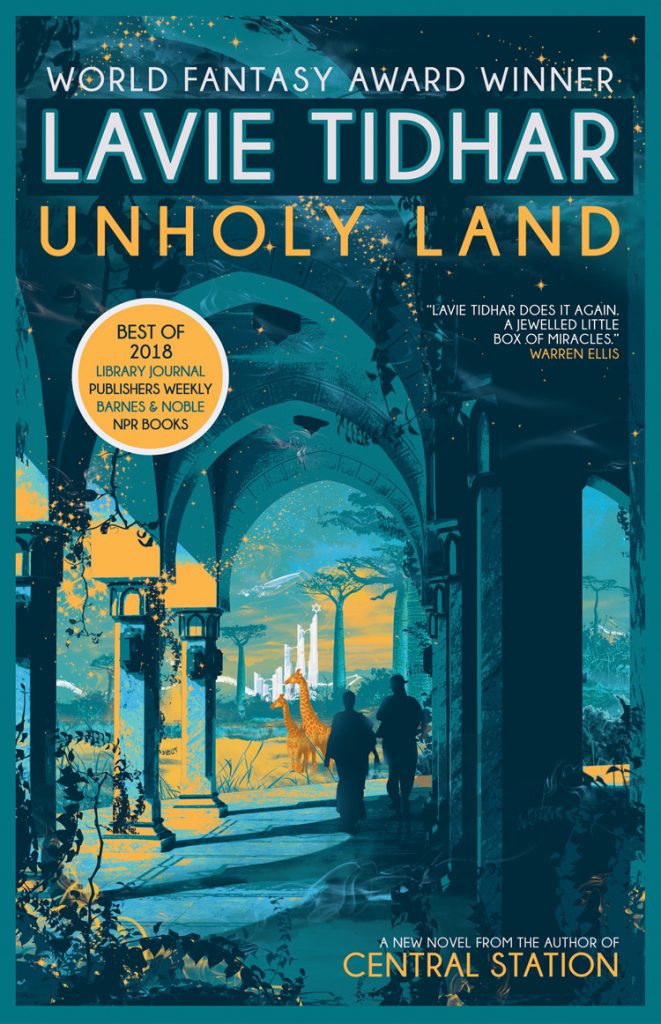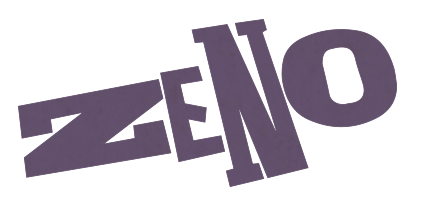
We’re very happy to report that the French edition of Lavie Tidhar‘s UNHOLY LAND has won the Prix Planète SF des blogueurs 2021!
Intelligent, fascinant, intrigant avant de devenir clair, Aucune terre n’est promise est un grand roman qui mérite amplement le Prix Planète-SF 2021.
The novel is published in France by Editions Mü as AUCUNE TERRE N’EST PROMISE. Here’s the synopsis…
… aucune destinée n’est manifeste.
Berlin. Lior Tirosh, écrivain de seconde zone, embarque pour la Palestina, fuyant une existence minée d’échecs. Il espère retrouver à Ararat City la chaleur du foyer, mais rien ne se passe comme prévu : la ville est ceinturée par un mur immense, et sa nièce, Déborah, a disparu dans les camps de réfugiés africains. Traqué, soupçonné de meurtre, offert en pâture à un promoteur véreux, Lior est entraîné malgré lui dans les dédales d’une histoire qu’il contribue pourtant à écrire.
Lavie Tidhar questionne nos identités, et le prix qui leur est attaché. Aucune terre n’est promise est un roman d’une incroyable lucidité sur les enjeux d’Israël, microcosme du monde. Il n’en cède pourtant rien à la poésie, seule utopie capable encore d’incarner la paix.
The English-language edition of UNHOLY LAND is published by Tachyon Publications.
Lior Tirosh is a semi-successful author of pulp fiction, an inadvertent time traveler, and an ongoing source of disappointment to his father.
Tirosh has returned to his homeland in East Africa. But Palestina — a Jewish state founded in the early 20th century — has grown dangerous. The government is building a vast border wall to keep out African refugees. Unrest in Ararat City is growing. And Tirosh’s childhood friend, trying to deliver a warning, has turned up dead in his hotel room. A state security officer has identified Tirosh as a suspect in a string of murders, and a rogue agent is stalking Tirosh through transdimensional rifts — possible futures that can only be prevented by avoiding the mistakes of the past.

The Prix Planète SF award joins a long list of the novel’s other commendations, which was also a best book of the year selected by NPR, Library Journal, Publishers Weekly, the Guardian, and Crime Time. It was also a Barnes & Noble Favorite Science Fiction and Fantasy Book of 2018, appeared on the Locus Recommended Reading List, and was nominated for the 2018 SCKA Award. The cover, by Sarah Anne Langton, was also a finalist for the BSFA Award for Best Cover.
Here are just a few of the great reviews the novel has received…
‘… will leave readers’ heads spinning with this disorienting and gripping alternate history… Readers of all kinds, and particularly fans of detective stories and puzzles, will enjoy grappling with the numerous questions raised by this stellar work.’ — Publishers Weekly (PW Picks: Books of the Week, October 15, 2018)
‘Lavie Tidhar is a genius at conjuring realities that are just two steps to the left of our own — places that look and smell and feel real, if just a bit hauntingly alien. UNHOLY LAND develops slowly. It begins with banal strangeness (this Palestinia, so like and unlike modern-day Israel) and leans gently into it… This is a story that gets weirder the deeper you get into it; that cultivates strangeness like something precious. It has three narrators: Investigator Bloom, Tirosh and a woman, Nur, who works as a field agent for the Border Agency. There are echoes of Chabon’s The Yiddish Policeman’s Union in it, wild strains of P.K. Dick and Roger Zelazny’s Chronicles of Amber. But UNHOLY LAND is its own thing. Something that no one but Tidhar could’ve written. Gorgeous in its alienness, comfortingly gray in its banality, and disquieting throughout.’ — NPR
‘Shifting perspectives will keep readers trying to catch up with this fast-paced plot involving incredible twists on multiple realities and homecoming. This latest from Campbell and World Fantasy Award winner Tidhar (Central Station) is fascinating and powerful.’ — Library Journal
‘[O]ne of those lovely books that starts out presenting itself as one thing, and mutates into another almost without you seeing it… a game-player of a writer who uses the spectrum of science fiction canon for his pieces… a grand game of alternate worlds cast like jewels on the sand. The long second act is all dust and blood and madness and glory, and the fast third act comes down on you like a sharpened spade… Lavie Tidhar is a clever bastard, and this book is a box of little miracles.’ — Warren Ellis
‘Tidhar has turned a suspenseful adventure tale into a complex meditation on the possible paths of modern Jewish history.’ — Chicago Tribune
‘We are in that kind of novel, the kind that doubles back and dodges sideways. Keeping up provides its own kind of pleasure… the various points of view meet up, and the result is an altogether dizzying and masterful use of narrative voice. The clashing narrative perspectives produce something like parallax—looking out of one eye, and then the other, and then both focused together on a third point. Which is the operative metaphor of UNHOLY LAND: one of partition and perspective, the same thing seen over and over and over again through different eyes… UNHOLY LAND plays in the strange, uncomfortable DMZ between the national founding myth and the uninterrogated childhood, between the person who leaves the homeland and the one who returns.’ — Barnes & Noble Sci-Fi & Fantasy Blog
‘By extending Tidhar’s exploration of multiple and metafictional realities in even more sophisticated and assured ways than his earlier novels, UNHOLY LAND is quite an irritated oyster.’ — Locus (Gary K. Wolfe)
‘… provocative and brash… UNHOLY LAND is a wildly inventive and entertaining novel that moves at a breathless gallop… [Tidhar has] staked a claim as the genre’s most interesting, most bold, and most accomplished writer.’ — Locus (Ian Mond)
